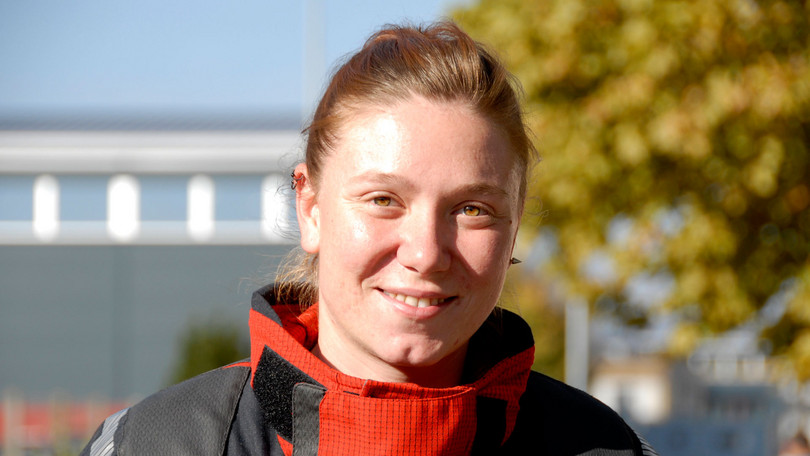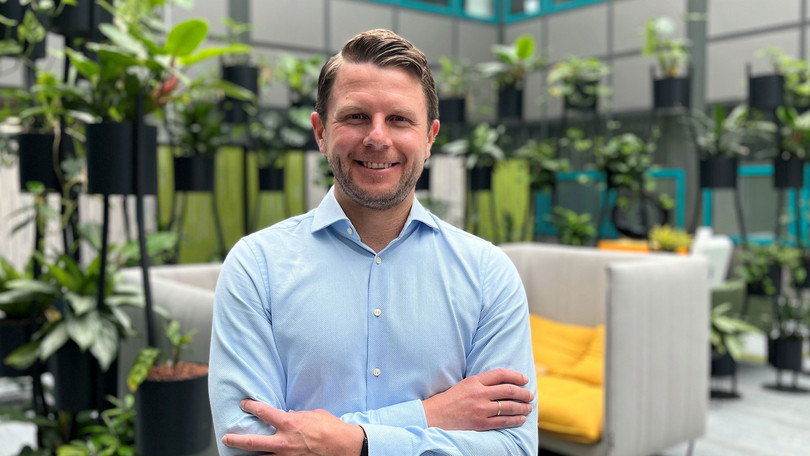Professional School Individuale certificate programme: Experience reports
Creating your own certificate programme and freely combining modules - why did others choose this path, what combination did they choose and how did they experience their individual certificate programme? The participants report on their experiences in the following interviews.
Flexible further education with high academic quality
Stanislaus Vetter has put together his individual certificate programme with modules from the Master of Public Health via the Professional School's continuing education portal.
What exactly have you booked and why?
I am studying the certificate programme in the Master of Public Health. In my professional role as a Manager in Health and Engagement at Continental, I am responsible for health management for the global tyre plants, among other things. To do this, I wanted to expand my previous knowledge with an academic perspective of health and prevention sciences focusing on the workplace. Luckily, my employer Continental supports me as a sponsor, which made my decision to study very easy.
How did you find out about the offer?
I asked colleagues and health scientists which universities they would recommend for a practical degree programme. Besides other universities, Leuphana University of Lüneburg was recommended to me several times. An internetsearch and consultation with the degree programme coordinator confirmed this positive impression.
Why did you decide for this type of further training?
I have a full-time job with a lot of international travelling - at the same time, my private life, friends and family are very important to me. I was therefore looking for a programme that offers a high academic quality, covers my areas of interest and those of my company in a targeted manner and allows me to do this flexibly to the extent possible. As my employer makes this part-time degree programme possible for me, this compatibility and the applicability of the content in my job is crucially important to me.
What is your experience of further training so far?
It's an exciting degree programme that gives me completely new impressions and perspectives. Above all, the exchange with fellow students from very different companies and industries allows me to broaden my horizons. I also gain exciting impulses from the lecturers, some of whom have a direct link to practice, which I can use very well in my job.
What knowledge from your education to date has helped you the most in your professional and/or private life?
My first degree was in engineering, so I was previously unfamiliar with social science methods. However, my degree programme taught me very good methods for making abstract constructs that are supposedly difficult to measure, such as “health”, more tangible. Being now able to use qualitative and quantitative methods is also an advantage for me in my job.
What did you like about your training programme?
The lecturers specifically address and inquire about participants' prior knowledge and areas of interest. The programme coordinators also try to meet the students' needs as comprehensively as possible. For example, hybrid or completely virtual course formats were also possible if this was requested by the students - even if this was not previously offered for a particular module. This demonstrates precisely the flexibility that I need as a professional.
Would you be interested in booking a module or certificate programme in the future?
Sure, I am particularly interested in practical seminars offered by experienced lecturers from research and business.
Would you also consider longer-term further education in a part-time Bachelor's or Master's programme?
Theoretically, long-term further education is an option for me. But there are interdisciplinary modules or basic principles that are not directly related to my profession or impart knowledge that I already have. In this respect, this would have to fit in exactly with my goals and knowledge.
Would you recommend the module or certificate programme to others?
My experience so far has shown me that the module/certificate programme enables participants to acquire specific knowledge that would otherwise only be possible as part of a full degree programme. It is also easier to balance work and private life than with a full degree programme. I therefore highly recommend the continuing education programmes and the Master of Public Health at Leuphana University of Lüneburg to anyone who is interested.
Lots of ideas for new projects
 ©Leuphana Professional School
©Leuphana Professional School
Julia Stärk has been completing a total of 8 modules from the M.Sc. Sustainable Chemistry as a PSI certificate programme since 2024. This allows her to study the content of the Master's programme without a Bachelor's degree.
Why did you decide to do further education in Sustainable Chemistry?
I completed my apprenticeship as a chemical laboratory technician in Switzerland from 2009-2012 and have been working for the same company ever since. My focus is on the practical optimisation in the laboratory of the synthesis processes of new crop protection products until they are ready for production.
I am passionate about my work, but I wanted to be able to utilise my now considerable influence even better. The future manufacturing route of a product is decided in our plant. After that, almost nothing can be changed by registration. Since I became aware of this key role, I started looking for further training that I could do with my previous knowledge and that would be as helpful as possible in making chemical reactions more sustainable "at second glance".
As I did my apprenticeship straight after leaving school, I never went to university and therefore didn't do a Bachelor's degree. This meant that I was denied virtually all the really interesting degree programmes that I thought would be useful. All the Bachelor's degree programmes that sounded interesting were not suitable for my needs and I was immediately rejected from Master's degree programmes, if I received an answer at all. The realisation was drastic - for universities, my more than 10 years of professional experience on the scale of 5mg to 100kg of product per batch
and I honestly felt a bit overqualified for a bachelor's degree. I think there are many people in my position and the certificate programme is a wonderful way to make the world of study a little more accessible and fair. Unfortunately, the individual modules are more expensive than the complete Master's programme, but that is also a legal problem and I am grateful that the PSI certificate programme gives me the opportunity to access this content at all.
The supervisors at Leuphana were the only ones who appreciated me immediately and also gave me very respectful and competent advice. At all times, I felt that I received the support I needed and more. From the teachers as well as from the administration.
How can further training support you in your professional life?
I hope that this further training will enable me to have a better influence on the development of more sustainable crop protection products. The production routes are already on the right track as, for example, many solvents are recycled and therefore hardly need to be bought new. Catalysis is also already being used on an industrial scale. Both have been implemented for decades as they save costs.
Biodegradability and waste are still an issue that is not yet generally in focus (but is of course being addressed) - also because it is quite cheap to incinerate waste and there are not yet many legal restrictions. However, this will intensify in the coming years, presumably worldwide. Of course, it is better to be prepared than to lag behind. Money and time are major motivating factors for all companies, as they always have to work economically. In addition, pressure from the general public is now also making sustainability more of a focus and part of companies' self-dictated goals worldwide. Here, too, the degree programme sets valuable priorities, as the conflict between ethics and profitability has been understood. It does not have to be a conflict, rather it can go hand in hand, as some of our processes already show.
Have you already been able to take knowledge from your studies into your career or work on problems from your everyday working life and find solutions during your studies?
On the one hand, I was able to benefit from my more than 10 years of professional experience during my studies (and was not as inferior as I expected), and on the other hand, I was able to incorporate what I had already learnt into my way of working. My role has already expanded to ‘identifying potential problems in waste treatment’ and many ideas for new projects have already emerged in several departments, as you look at everything directly and continuously from a new perspective.
How does the PSI certificate programme work?
Instead of a complete degree programme (Bachelor's, Master's, ...), you only choose individual modules and book them. Important to know when booking: If you book several modules together, you will receive a certificate or diploma at the end - but the university will advise and support you very well if you contact them early on. A module takes about 6 weeks, during which you should really work on it regularly in order to get the most out of it and not have all the stress just before the end of the module.
How do you experience the exchange with your fellow students, lecturers and the programme team?
Very positive, there is very quick feedback and support when needed. However, it is of course special that although you are part of a Master's programme, you are somehow not. As I only took 2/3 of all the modules in the M.Sc. programme and not everyone is in the same cohort in order to have more flexibility at work, the sense of belonging can suffer. However, I can assure you that you are regarded and respected as absolutely equal to all other students.
What advice would you give others about studying part-time?
You definitely have to be aware that it is a huge additional workload, which I also underestimated at the beginning. Leuphana's estimate of 20 hours per week is not excessive and fairly accurate. So it's basically an additional 50% job within the time limits of a module (approx. 6 weeks)! I really enjoy the breaks between two modules whereas students on the full Master's programme don't have this luxury.
Contact & Advising
Dr. Kathrin Susann Becher
Universitätsallee 1, C40.117
21335 Lüneburg
Fon +49.4131.677-1193
kathrin.becher@leuphana.de

